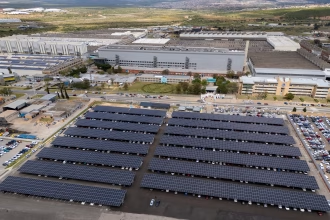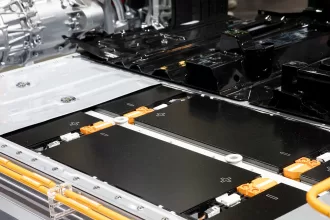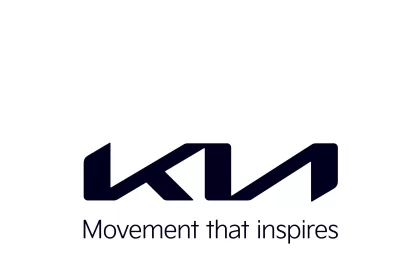The National Automobile Dealers’ Association (NADA) today released a comprehensive overview of the current economic conditions impacting the auto sector. This detailed analysis emphasises the vital role motor dealers/retailers play in helping customers navigate the challenging economic environment.
“As we navigate through a period of significant economic uncertainty, the role of automotive dealers has never been more critical. These dedicated professionals are at the forefront, assisting customers in making informed financial decisions amid challenging market conditions. Despite facing numerous hurdles, from stagnant economic growth and high inflation to increased regulatory demands, dealers are demonstrating remarkable resilience and adaptability. Their unwavering commitment to maintaining the highest standards of compliance is essential in supporting both consumers and the automotive industry as a whole. Together, we are committed to steering our industry through these turbulent times and towards a more stable and prosperous future,” said Brandon Cohen, Chairperson of the National Automobile Dealers’ Association (NADA), in his opening address at the 2024 F&I Industry Virtual Summit, presented by absa and NADA.

A challenging economic environment
South Africa’s economic landscape remains challenging, with projections indicating growth of less than 1% in 2024 following a modest growth rate of 0.6% in 2023. Persistent electricity issues have significantly impacted the economy, reducing GDP by 1.5% in 2023. This trend is expected to continue, with further reductions of 0.6% in 2024 and 0.2% in 2025.
Household debt servicing costs are rising, consuming a larger percentage of income than in previous years, while household savings have dropped to their lowest levels since 2019. Inflation remains stubbornly high at 5.2%, which exceeds the South African Reserve Bank’s (SARB) midpoint target of 4.5%.
Consequently, interest rate cuts will only be feasible when inflation aligns consistently with this target. Additionally, the collapse of Transnet’s port and rail services has further hindered economic performance.
Auto sector specifics
The auto sector is experiencing significant challenges, with the passenger car segment witnessing eight consecutive months of declining sales (although April did show modest gains). This downturn has reduced opportunities to offer finance and insurance products to clients. As clients’ buying power diminishes, their ability to secure vehicle financing is also impacted. There is a noticeable increase in approved but unutilised transactions due to consumer uncertainty. The resultant desperation among auto dealers to make sales has made them targets for criminal activities.
In 2023 and 2024, there has been an increase in the use of fraudulent documents, impersonation of police, military, and intelligence officials, a rise in off-sight and unsighted transactions, and sophisticated cybercrimes such as spoofing, phishing, and email intercepts. Despite these challenges, the emergence of online finance applications and artificial intelligence (AI) is noteworthy.
Potential positive developments
Despite the economic challenges, there are positive signs on the horizon. Independent Power Producers (IPPs) have contributed approximately 3 GW to power production, with an additional 3 GW expected in the next five months. Bank economists predict a potential rate cut of 0.5% to 0.75% this year, depending on electoral outcomes and global factors. A further reduction of 0.75% to 1% is anticipated in 2025.
Lower fuel costs in ZAR terms could provide consumer relief if global tensions, particularly in the Middle East, stabilise and if the northern hemisphere’s summer reduces oil demand. Additionally, manufacturing and mining production are showing positive trends, with year-on-year increases of 4.1% and 9.9%, respectively.
Legislative landscape and navigating compliance
The grey-listing of South Africa by the Financial Action Task Force (FATF) has led to significant amendments to the Financial Intelligence Centre (FIC) Act, impacting dealer compliance as High Value Goods Dealers. F&I professionals must adapt to evolving compliance requirements, which include board-approved Risk Management Compliance Programmes (RMCPs) with bespoke risk analyses, sanction screening in accordance with Directive 8, proper FIC training tailored to in-dealer needs, and Ultimate Beneficial Ownership requirements for individuals with 5% or more shares/voting rights.
The introduction of Public Compliance Communication 44A by the Financial Intelligence Centre to combat terrorist and proliferation financing, as well as Public Compliance Communication 58 which clarifies High Value Goods Dealers’ obligations, also affect compliance. The sector awaits the Conduct of Financial Institutions (COFI) Act and the outcomes of the FSCA investigation into dealer Value-Added Products and Services (VAPS) and Dealer Introductory Commission (DIC).
Despite these challenges, F&I professionals within franchise dealerships have demonstrated resilience by structuring and tailoring transactions to present optimal packages to customers. Currently, 80% of new and over 50% of used cars are still financed, despite increased complexities in deal approvals.
“F&I professionals are at the forefront of ensuring compliance with evolving regulations, whether through digital onboarding solutions or manual processes. They play a vital role in understanding and meeting the needs of each client, ensuring fair treatment, and offering the best finance rates and Value-Added Products to meet the distinct needs of each individual. Their unique skills contribute immensely to the income and sustainability of dealerships,” concluded Cohen.














